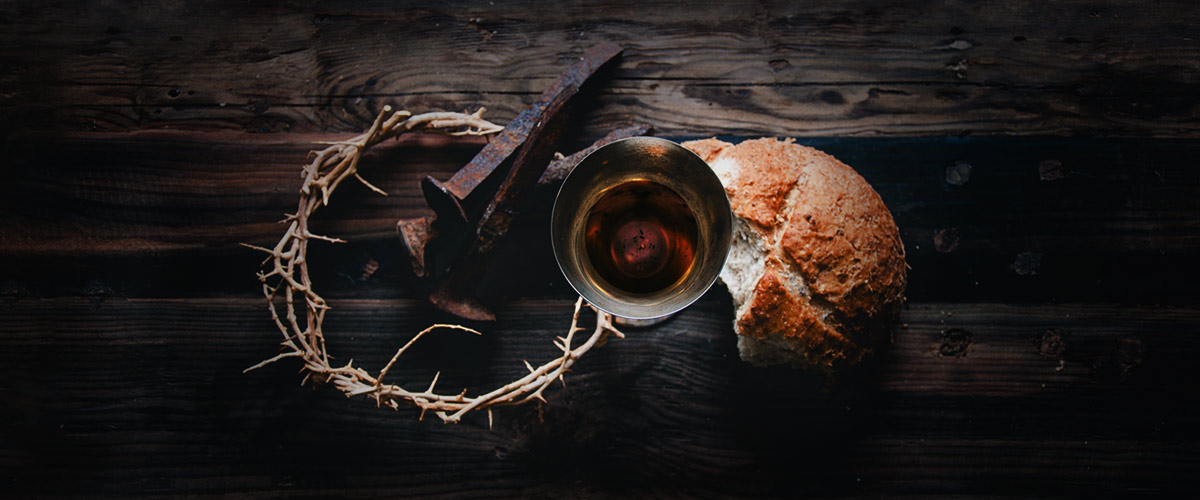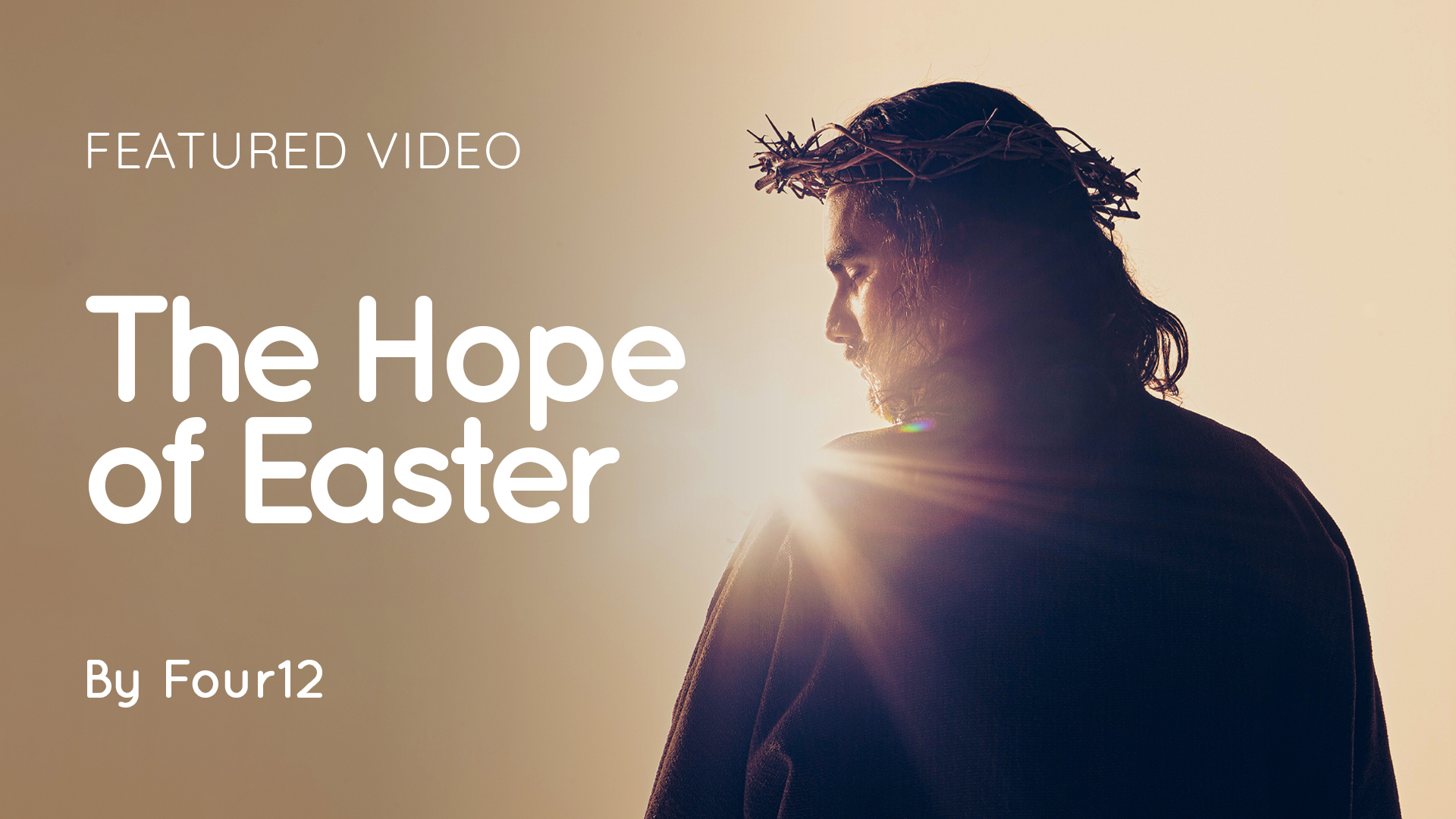God’s desire is for you to receive the most beautiful life, by virtue of the most precious gift on earth: the New Covenant.
Do you know what it means to be in a covenantal relationship? Many people have no idea what a covenant is, which covenants still exist, and what the agreements are within the various Biblical covenants. In this article, we will explore the ‘New Covenant’. Every statement in this article is referenced by a specific Bible verse, and I would encourage you to read each reference.
What is a Covenant?
A covenant is a binding agreement between two parties that may not be broken. Only the death of one of the parties makes the agreement obsolete. We see this in the marriage covenant, where the concluding words of the vows are traditionally ‘until death parts us’.
Biblical Covenants
Before we look at the New Covenant, it is important to know that God made several covenants, such as those made with Noah, Abraham and Moses.
Abraham’s Covenant
This was an eternal covenant that God made with Abraham that applies to all of the descendants of Abraham (Genesis 17:7-13). This is a unilateral covenant; that is, God unilaterally makes the agreement and unilaterally gives a promise. God alone made this covenant, while Abraham was asleep (Genesis 15:7-21). God put Abraham to sleep because He knew that Abraham could not fulfill his part in this covenant. The covenant was a promise to Abraham that God would bless him with great posterity, which would later become the people of Israel, with Canaan (the present state of Israel) being the land where they would live (Genesis 17:7-8). The sign (or confirmation) of this covenant was circumcision (Genesis 17:9-14). So the covenant with Abraham did not mean justification. Abraham was justified on the basis of his faith (Genesis 15:1-3, Romans 4:3, Gal. 3:6) and not on the basis of the covenant that God made with him. In John 8, Jesus makes this clear in a very sharp way, when He is with people who are children of Abraham by lineage, but calls them children of the devil, spiritually (John 8:37-47). So the covenant with Abraham was not directly related to justification. People who believe like Abraham are called children of Abraham, regardless of their biological background (Galatians 3:7). The Bible says that they are spiritual children of Abraham, spiritual (supernatural) children of God, justified by faith. To be justified means that you have a right standing before God. You are free from all injustices you have committed, and thus you can live in relationship with God.
Moses’ Covenant
Through the covenant God made with Abraham, the nation of Israel came into existence. About 500 years later, God made another covenant with this nation: the covenant with Moses (Deuteronomy 5:2-3, Exodus 24). After God rescued/saved Israel from Egypt through the Red Sea, He made another covenant, and the offspring of Abraham became His people. God confirmed this covenant through the giving of the law; the rules through which He and His people would be faithful to one another. The purpose of this was for God to make Himself known to the world as the One, living God: the God of Israel (Deuteronomy 7:6-9). In short, the thrust of this covenant was that obedience/faithfulness leads to blessing, while disobedience/unfaithfulness leads to cursing (Deuteronomy 28). God’s desire was for Israel to obey Him, and for a supernatural blessing to flow from this obedience. As a result, the surrounding nations would be able to see that the God of Abraham, Isaac and Jacob (the God of Israel) is the only living God. This was a two-way covenant, which means that God made a promise, and the people of Israel answered with a promise to keep this covenant (Exodus 19:8, Exodus 24:3). And, as is customary with covenants in the Bible, this was sealed with blood (Exodus 24:8).
To this covenant belongs the tabernacle (and later the temple) where the priests served, with the Ark of the covenant, the outer court, the Holy Place, the Holy of Holies, the altar of burnt offering, etc. (Exodus 25 to 31). In the tabernacle (the tent of God), there is a place called the Holy of Holies (Exodus 26:33) where God dwelt with His people (Exodus 25:8, Exodus 29:44-46). In the Holy of Holies, the place into which the high priest was allowed to enter once a year, stood the Ark of the Covenant, containing a copy of the law (Exodus 24:12, Exodus 25:16). The consequence of unfaithfulness (sin) to the law is punishment (judgment). As a result, the Israelites have ‘a problem’ with God. Through their sin, they violated their promise to Him through their unfaithfulness to Him (Leviticus 6:1-6, Deuteronomy 8:19-20). We read over and over again in the Bible that God loves His covenant people deeply. He is a God of forgiveness and love. That is why God established the Day of Atonement once a year (Leviticus 16), where the high priest offered a sacrifice on behalf of all the people and asked God for their collective forgiveness (Leviticus 16:11-28). After this ceremony, all the people were absolved of their sins.
A New Covenant
Despite God’s many warnings, the people of Israel wander further and further from God. Nevertheless, there is new hope brought again through the words of the prophets. While Israel repeatedly breaks the covenant with God, God announces a new covenant through Jeremiah: “Behold, days are coming, says the LORD, that I will make a new covenant with the house of Israel and with the house of Judah, not as the covenant which I made with their fathers in the day that I seized their hand to lead them out of the land of Egypt – My covenant, which they broke, though I had married them, says the LORD. Verily, this is the covenant that I will make with the house of Israel after those days, says the LORD: I will put My law within them and will write it in their hearts. I will be their God and they will be My people.”
Then they shall no longer teach every man his neighbor and every man his brother by saying, Know the LORD; for they shall all know Me, from their smallest to their greatest, says the LORD. For I will forgive their iniquity and think no more of their sins. (Jeremiah 31: 31-34)
Here we read that God promises a New Covenant. The old covenant refers to the covenant with Moses (the covenant He made after the exodus from Egypt (Jeremiah 31:31)). God promises that, with the coming of this new covenant, He Himself will write the law in the hearts of men (Jeremiah 31:33, Ezra 36:26-27).
The promise of the new covenant has come true. Jesus has come to replace the old covenant made with Moses with a new and better covenant (2 Corinthians 3, Hebrews 8 and 9).
Which Covenant Are You Living In?
You were possibly raised in a church which taught that you were part of the covenant with Abraham, and that infant baptism replaces circumcision. At the baptism of small children, therefore, Psalm 105:5 is often sung: ‘the covenant of Abraham His friend, He confirms from child to child’. Since this covenant of Abraham is explicitly for the natural descendants of Abraham, the present Israelites, this is an incorrect interpretation. After all, they still circumcise their sons on the eighth day, as God commanded Abraham (Genesis 17:10-12). Abraham’s covenant had nothing to do with salvation and the forgiveness of sins (John 8:37-47).
Forgiveness of sins is only possible through faith in the blood of the Lamb. This is true under both the old covenant with Moses and the new covenant of Jesus. This applies to both the Jews and the Gentiles (Ephesians 2:11-22).
Jesus Institutes the New Covenant
Jesus came to earth to save us by instituting the New Covenant: the covenant of His blood. We read this when Jesus announced His death at the Passover meal: “He also took the cup, and having given thanks, He gave it to them, saying, “Drink from it all of you, for this is My blood, the blood of the new covenant, which is shed for many for the remission of sins.”” (Matthew 26:27-28)
When Jesus died, on the Friday before Easter, the temple veil between the Holy Place and the Holy of Holies was torn (Matthew 27:51); the place into which the high priest entered once a year to sprinkle blood over the Ark of the (old) Covenant. From this day on, however, this ceremony was no longer necessary, because at that moment a better covenant was established: the New Covenant (Hebrews 8). Jesus, the Lamb of God, who takes away the sin of the world (John 1:29) died and shed His blood, thereby bringing the New Covenant into force! His death fulfilled the old covenant and gave way to the New Covenant. The temple service came to an end. Jesus rose from the dead after three days to be our High Priest forever (Hebrews 4:14, Hebrews 8)! We can now turn to Him for the forgiveness of our sins (Hebrews 4:16).
The Holy Spirit is the promise that came with the New Covenant. He is the One who first wrote the law on stone tablets but now wants to write the law in our hearts. He is the One who pours the love of God into our hearts (Romans 5:5). He is the One who makes it possible for us to live in freedom (2 Corinthians 3:17). He is the One who transforms us into the image of Jesus (2 Corinthians 3:18).
God loves humanity so much that He wants no one to be lost, and all people to be saved (John 3:16 and 1 Timothy 2:4). This means that, after this life, without judgment and punishment, we will be perfectly in God’s presence.
All people have sinned and deserve punishment for their sins (Romans 3:23), but in His goodness, God decided to send His Son, Jesus, to die for our sins (John 3:16). He gives us an invitation to participate in the New Covenant: the covenant of the blood of Jesus.
How do I get to participate in this New Covenant?
Shortly after the outpouring of the Holy Spirit, Peter powerfully says, “Repent, and let every one of you be baptized in the Name of Jesus Christ for the remission of sins; and you shall receive the gift of the Holy Spirit.” (Acts 2:38)
It is important to recognise that you are sinful (1 John 1:9), that you have a problem with God, and that you need to repent of your sins. God promises that when you do, you will receive the Holy Spirit, who will help you to live the life God wants you to live, and give you power to be His witness.
Water baptism is also part of the New Covenant. When you come to faith, you are baptised into Jesus’ death, burial and resurrection (Romans 6:1-13). His death becomes your death, and His life also becomes your life. Through baptism, you may know that your sins have been have been washed away (Acts 22:16) and that you are forgiven (1 Peter 3:21).
Today
Jesus wants to make a covenant with you today; a covenant for which He gave His life and through which He offers forgiveness for your sins. He offers you a whole new life – a better life!
Will you accept the cup of the New Covenant?










